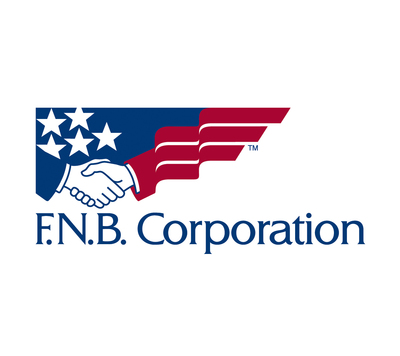F.N.B. Corporation Completes Acquisition of UB Bancorp
Rhea-AI Summary
F.N.B. Corporation (NYSE: FNB) has announced the successful acquisition of UB Bancorp, effective December 12, 2022. This acquisition enhances FNB's position in North Carolina, bringing total assets to nearly $44 billion, total loans to $29 billion, and total deposits to $35 billion. The merger increases FNB's deposit market share to ninth in the state, adding low-cost deposits and improved digital banking services for Union Bank customers. This strategic move is expected to leverage FNB's existing investments in the North Carolina market, enhancing its service offerings.
Positive
- Acquisition increases total assets to nearly $44 billion.
- Enhances presence in North Carolina, with proforma deposit market share rising to ninth in the state.
- Brings low-cost granular deposits, improving financial position.
- Union customers gain access to enhanced digital banking services.
Negative
- None.
News Market Reaction 1 Alert
On the day this news was published, FNB gained 0.54%, reflecting a mild positive market reaction.
Data tracked by StockTitan Argus on the day of publication.
FNB Welcomes New Customers in North Carolina
PITTSBURGH, Dec. 12, 2022 /PRNewswire/ -- F.N.B. Corporation (NYSE: FNB) announced that it successfully completed its acquisition of Greenville, North Carolina-based UB Bancorp, including its wholly-owned banking subsidiary, Union Bank (Union).
As a result of the acquisition of Union, FNB has nearly
"The Union Bank acquisition leverages FNB's current investments in the fast-growing North Carolina markets which now have more than 110 FNB branches and over 300 ATMs while also providing a favorable deposit mix," said Vincent J. Delie, Jr., Chairman, President and Chief Executive Officer of F.N.B. Corporation. "We are excited to welcome Union Bank's customers and introduce them to a more expansive suite of products and services, such as Insurance, Wealth Management, Private Banking, Treasury Management, Mortgage Banking and Capital Markets and Debt Capital Markets capabilities."
Shares of Union common stock will no longer be traded through OTCQX.
About F.N.B. Corporation
F.N.B. Corporation (NYSE: FNB), headquartered in Pittsburgh, Pennsylvania, is a diversified financial services company operating in seven states and the District of Columbia. FNB's market coverage spans several major metropolitan areas, including: Pittsburgh, Pennsylvania; Baltimore, Maryland; Cleveland, Ohio; Washington, D.C.; Charlotte, Raleigh, Durham and the Piedmont Triad (Winston-Salem, Greensboro and High Point) in North Carolina; and Charleston, South Carolina. The Company has total assets of nearly
FNB provides a full range of commercial banking, consumer banking and wealth management solutions through its subsidiary network, which is led by its largest affiliate, First National Bank of Pennsylvania, founded in 1864. Commercial banking solutions include corporate banking, small business banking, investment real estate financing, government banking, business credit, capital markets and lease financing. The consumer banking segment provides a full line of consumer banking products and services, including deposit products, mortgage lending, consumer lending and a complete suite of mobile and online banking services. FNB's wealth management services include asset management, private banking and insurance.
The common stock of F.N.B. Corporation trades on the New York Stock Exchange under the symbol "FNB" and is included in Standard & Poor's MidCap 400 Index with the Global Industry Classification Standard (GICS) Regional Banks Sub-Industry Index. Customers, shareholders and investors can learn more about this regional financial institution by visiting the F.N.B. Corporation website at www.fnbcorporation.com.
CAUTIONARY STATEMENT REGARDING FORWARD-LOOKING INFORMATION
This document may contain statements regarding F.N.B. Corporation's outlook for earnings, revenues, expenses, tax rates, capital and liquidity levels and ratios, asset quality levels, financial position and other matters regarding or affecting our current or future business and operations. These statements can be considered "forward-looking statements" within the meaning of the Private Securities Litigation Reform Act of 1995. These forward-looking statements involve various assumptions, risks and uncertainties which can change over time. Actual results or future events may be different from those anticipated in our forward-looking statements and may not align with historical performance and events. As forward-looking statements involve significant risks and uncertainties, caution should be exercised against placing undue reliance upon such statements. Forward-looking statements are typically identified by words such as "believe," "plan," "expect," "anticipate," "intend," "outlook," "estimate," "forecast," "will," "should," "project," "goal," and other similar words and expressions. We do not assume any duty to update forward-looking statements, except as required by federal securities laws.
FNB's forward-looking statements are subject to the following principal risks and uncertainties:
- Our business, financial results and balance sheet values are affected by business, economic and political circumstances, including, but not limited to: (i) developments with respect to the U.S. and global financial markets; (ii) actions by the Federal Reserve Board, Federal Deposit Insurance Corporation, U.S. Treasury Department, Office of the Comptroller of the Currency and other governmental agencies, especially those that impact money supply, market interest rates or otherwise affect business activities of the financial services industry; (iii) a slowing of the U.S. economy in general and regional and local economies within our market area; (iv) inflation concerns; (v) the impacts of tariffs or other trade policies of the U.S. or its global trading partners; and (vi) the sociopolitical environment in the United States.
- Business and operating results affected by our ability to identify and effectively manage risks inherent in our businesses, including, where appropriate, through effective use of systems and controls, third-party insurance, derivatives, and capital management techniques, and to meet evolving regulatory capital and liquidity standards.
- Competition can have an impact on customer acquisition, growth and retention, and on credit spreads, deposit gathering and product pricing, which can affect market share, loans, deposits and revenues. Our ability to anticipate, react quickly and continue to respond to technological changes and COVID-19 challenges can also impact our ability to respond to customer needs and meet competitive demands.
- Business and operating results can also be affected by widespread natural and other disasters, pandemics, including the impact of the COVID-19 pandemic crisis and post pandemic return to normalcy, global events, including the Ukraine-Russia conflict, dislocations, including shortages of labor, supply chain disruptions and shipping delays, terrorist activities, system failures, security breaches, significant political events, cyber attacks or international hostilities through impacts on the economy and financial markets generally, or on us or our counterparties specifically.
- Legal, regulatory and accounting developments could have an impact on our ability to operate and grow our businesses, financial condition, results of operations, competitive position, and reputation. Reputational impacts could affect matters such as business generation and retention, liquidity, funding, and the ability to attract and retain talent. These developments could include:
- Policies and priorities of the current U.S. presidential administration, including legislative and regulatory reforms, different approaches to supervisory or enforcement priorities, changes affecting oversight of the financial services industry, regulatory obligations or restrictions, application of consumer protection interpretations, taxes, employee benefits, compensation practices, pension, bankruptcy and other industry aspects, and changes in accounting policies and principles.
- Changes to regulations or accounting standards governing bank capital requirements, loan loss reserves and liquidity standards.
- Changes in monetary and fiscal policies, including interest rate policies and strategies of FOMC.
- Unfavorable resolution of legal proceedings or other claims and regulatory and other governmental investigations or other inquiries. These matters may result in monetary judgments or settlements, enforcement actions or other remedies, including fines, penalties, restitution or alterations in our business practices, and in additional expenses and collateral costs, and may cause reputational harm to FNB.
- Results of the regulatory examination and supervision process, including our failure to satisfy requirements imposed by the federal bank regulatory agencies or other governmental agencies.
- Business and operating results are affected by our ability to effectively identify and manage risks inherent in our businesses, including, where appropriate, through effective use of policies, processes systems and controls, third-party insurance, derivatives, and capital and liquidity management techniques.
- The impact on our financial condition, results of operations, financial disclosures and future business strategies related to the impact on the allowance for credit losses due to changes in forecasted macroeconomic conditions as a result of applying the "current expected credit loss" accounting standard, or CECL.
- A failure or disruption in or breach of our operational or security systems or infrastructure, or those of third parties, including as a result of cyber-attacks or campaigns.
- The continuing uncertainty regarding the duration of the COVID-19 pandemic and the federal, state, and local regulatory and governmental actions implemented in response to COVID-19 have resulted in increased volatility of the financial markets and national and local economic conditions, supply chain challenges, rising inflationary pressures, increased levels of unemployment and business failures, and the potential to have a material impact on, among other things, our business, financial condition and performance, results of operations, capital levels, liquidity, or on our management, employees, customers and critical vendors and suppliers. In view of the many unknowns associated with the COVID-19 pandemic, our forward-looking statements continue to be subject to various conditions that may be substantially different in the future than what we are currently experiencing or expecting, including, but not limited to, challenging headwinds for the U.S. economy and labor market and the possible change in commercial and consumer customer fundamentals, expectations and sentiments.
- We grow our business, in part, through acquisitions and new strategic initiatives. Risks and uncertainties include those presented by the nature of the business acquired and strategic initiative, including in some cases those associated with our entry into new businesses or new geographic or other markets and risks resulting from our unfamiliarity with those new areas, as well as risks and various uncertainties related to the acquisition transactions themselves, regulatory issues, and the integration of the acquired businesses into FNB after closing.
The risks identified here are not exclusive or the types of risks FNB may confront and actual results may differ materially from those expressed or implied as a result of these risks and uncertainties, including, but not limited to, the risk factors and other uncertainties described under Item 1A Risk Factors and the Risk Management sections of our 2021 Annual Report on Form 10-K, our subsequent 2022 Quarterly Reports on Form 10-Q (including the risk factors and risk management discussions) and our other 2022 filings with the SEC, which are available on our corporate website at https://www.fnb-online.com/about-us/investor-information/reports-and-filings or the SEC's website at www.sec.gov. More specifically, our forward-looking statements may be subject to the evolving risks and uncertainties related to the COVID-19 pandemic and its macro-economic impact and the resulting governmental, business and societal responses to it. We have included our web address as an inactive textual reference only. Information on our website is not part of our SEC filings.
______________________________ |
1 Excluding PacWest Bancorp |
![]() View original content to download multimedia:https://www.prnewswire.com/news-releases/fnb-corporation-completes-acquisition-of-ub-bancorp-301699912.html
View original content to download multimedia:https://www.prnewswire.com/news-releases/fnb-corporation-completes-acquisition-of-ub-bancorp-301699912.html
SOURCE F.N.B. Corporation








